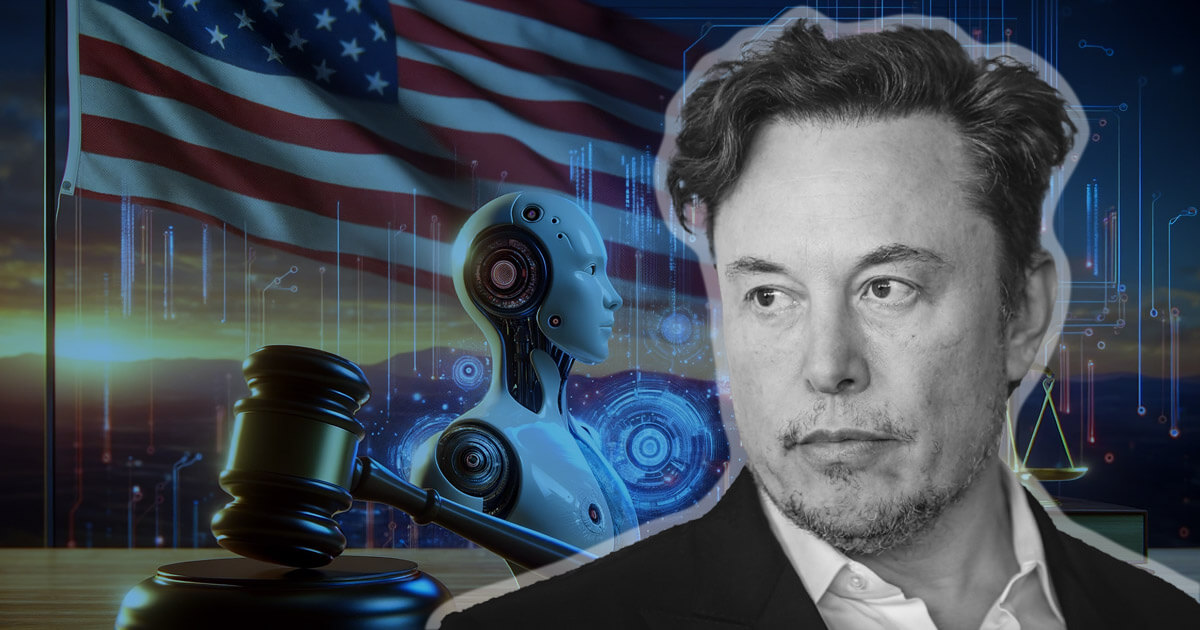
Elon Musk revealed in latest court docket filings that he personally intervened to cease OpenAI from launching an preliminary coin providing (ICO) in 2018, a transfer he claimed would have severely broken the group’s fame.
Musk’s authorized crew disclosed the small print in an amended lawsuit filed on Nov. 14, including to the rising tensions between the billionaire and the AI analysis group he co-founded.
The submitting alleged that OpenAI co-founders Sam Altman and Greg Brockman proposed the ICO to deal with the nonprofit’s monetary struggles.
Nonetheless, Musk, who served as co-founder and was a major donor rejected the plan outright, warning that issuing a token would undermine belief in OpenAI and compromise its mission to develop protected synthetic normal intelligence (AGI).
Musk acknowledged within the submitting:
“It might merely end in an enormous lack of credibility for OpenAI and everybody related to the ICO.”
The choice highlighted inside tensions over how the group may steadiness its formidable objectives with monetary sustainability.
Origins and funding challenges
OpenAI launched in 2015 with the lofty objective of making certain AGI advantages all of humanity.
Musk joined as a co-founder and contributed $44 million in funding whereas serving as co-chair of its board. The group additionally attracted important help from Silicon Valley’s elite, together with Altman, who supplied vital management and extra funding.
Regardless of these contributions, OpenAI struggled to maintain its operations financially by 2018. The proposed ICO, a well-liked fundraising technique throughout the crypto growth of the time, aimed to generate important capital however confronted pushback from Musk, who feared it might battle with OpenAI’s nonprofit values.
Court docket filings revealed that Musk even urged merging OpenAI with Tesla to create a sustainable funding mannequin. The proposed merger would have allowed Tesla’s AI assets to bolster OpenAI’s efforts whereas offering the nonprofit with a gradual monetary base.
Nonetheless, the board didn’t pursue Musk’s concept, additional straining relationships throughout the group.
OpenAi’s shift
Musk left OpenAI’s board in February 2018, citing potential conflicts with Tesla’s personal AI growth tasks. His departure marked a pivotal second for the group.
In 2019, OpenAI subsequently transitioned to a “capped-profit” mannequin designed to draw substantial funding whereas limiting returns to stakeholders.
The shift enabled OpenAI to safe important backing, together with a $1 billion partnership with Microsoft that yr. Nonetheless, Musk’s lawsuit argues that this transition represented a departure from OpenAI’s unique nonprofit mission and accuses the management of fraud and federal racketeering.
The amended criticism, filed in August, additionally added Microsoft as a defendant within the case, accusing the corporate of distorting the AI group’s function by its monetary involvement.
In the meantime, OpenAI has filed a movement to dismiss the case, arguing that Musk’s claims are legally unfounded and are a part of a broader technique to realize a aggressive benefit within the AI trade.




